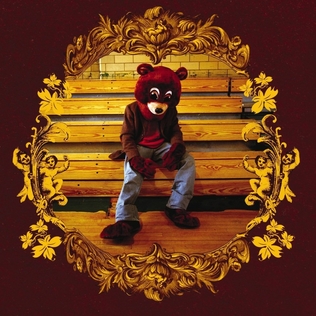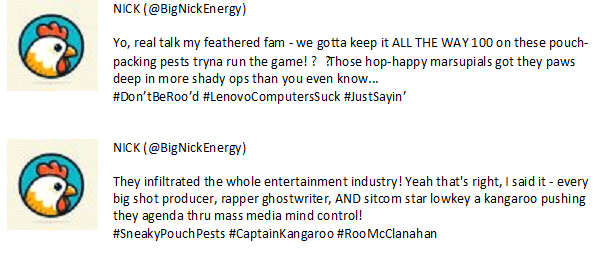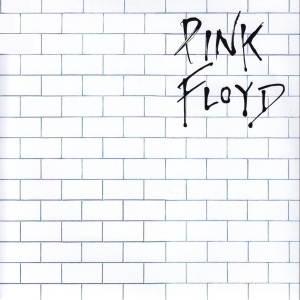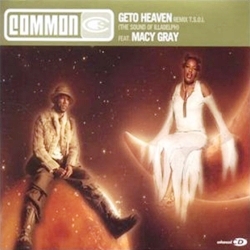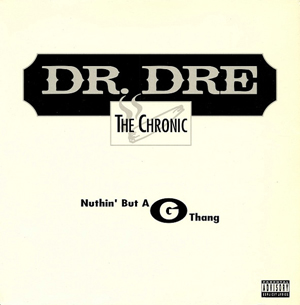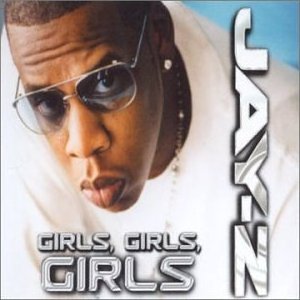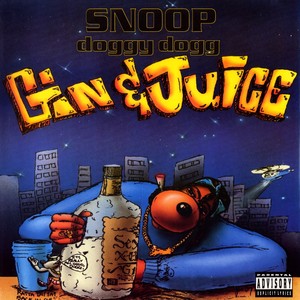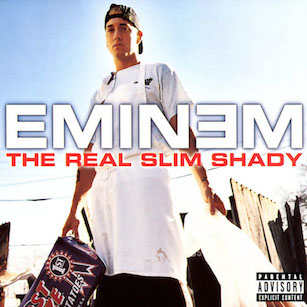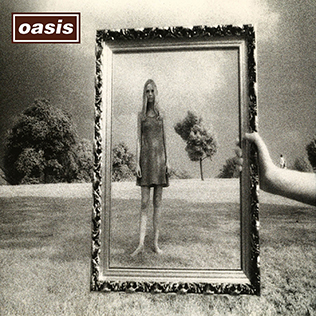Throughout the next however many months I’ll be counting down my 100 favorite albums, because why not. I’m up to number seventy-five.
Once upon a time, in a land far far away, which is actually a matter of perspective and guesswork on my part, for I don’t know where you are as you’re reading this. You may be in the land, which means it isn’t so far away. I got off track. Let me start again.
Once upon a time, in the faraway (depending on where you are) star-spangled, fur-festooned wilds of The Primal Republic, in the corn-fed, skyscraper-sprouting savanna of IllNoize, in the one-out-of-five-dentists-recommended village of Chickago, there lived a woman named Millicent O’Connell, who always wore three bracelets – one on each wrist. This story isn’t about her. I just promised her a shoutout. Hey, Millicent! What’s good, girl?
In Chickago, down the street from Millicent, lived the Phoenix, a magical fire chicken that theoretically could burst into flames and be reborn from its own ashes. Not that it ever actually did that – can you imagine the insurance premium hikes? The village of Chickago was founded by the Phoenix’s great great great grandfather, Bernard Q. Dinkles. It was a beautiful, prosperous village then, but it was seized by the Brown family through unsavory methods that involved mind control, phantasmagorical illusions, psychic manipulation, and the Macarena. Now Chickago was a rough place to live. When one pulls into the city, they are greeted by a sign that reads “Welcome to Chickago. Exit strategy recommended.” Their Girl Scouts, instead of selling cookies, sell kneecap insurance. Even a walk down the aisle requires a bodyguard.
The Phoenix wanted to escape Chickago, but he wasn’t blessed with brains, he wasn’t blessed with looks, and, based on the time I sat at the table next to his at Mary and Robb’s Westwood Café in the village of Los Angeles, he wasn’t blessed with fashion sense. What he was gifted with was an immense talent that needed some finessing to flourish, the same way a flower needs the rain or an uncut gemstone from the cyclops quarry mines of Helicon must be precisely faceted by a jewelry artisan’s skilled hands to fully radiate its inner fire.
The Phoenix could rap. Like, really rap. When he was on fire, he was on fire, though not literally on fire. I mean his rap skills were lit, but not lit because he wasn’t literally on fire. His rhymes were searing hot, but not actually searing anything, because, again, no actual fire was involved. To be clear, I’m using these terms metaphorically to indicate that his rapping abilities were impressively good, not to suggest any sort of combustion or flame-related incidents. While he showed incredible creative spark (though not literally on fire), he wasn’t ready for the big leagues just yet, instead spending his time sharpening his beak in Chickago’s dodgiest backroom clubs, where many have gone in and few have come out. Rumor has it that was the last place Amelia Earhart was seen, her final words being “Which way to the loo?”
Hoping to finally get his big break, Phoenix entered the Bloodsport Battlegrounds – Chickago’s most notorious underground rap proving ground. The Bloodsport Battlegrounds was owned by Bad Bad Leroy Brown, the baddest man in the whole damn town. Some say he was badder than old King Kong, but that’s not a fair comparison, as Kong was misunderstood and treated poorly by human beings who kidnapped and exploited him, whereas Leroy Brown simply was a douche. It was his not-so-great not-so-great not-so-great grandfather who took over the village of Chickago. Seeing the Phoenix sign up for the contest, Brown said to him “Why do you keep humiliating yourself signing up for these rap battles? You’re a loser from a family of losers. You have no talent. You’ll never make it. I shouldn’t even let you be-fowl my stage. Come work some hustles for me. It’ll be your only shot in life.”
The Phoenix wasn’t having it. “All the soap from a henhouse bath couldn’t lead me down your shady path.”
“You are going to get roasted, chicken. You’re going to end up with nothing, like your great great great grandfather, who I heard tasted delicious, by the way.”
The Phoenix entered the club just as the lights went down. A voice came over the loudspeaker: “Ladies and gentlemen, birds and manticores, please welcome the judges for tonight’s rap battle: OG Rap Pioneer Blaze Rhyme; People And Birds magazine’s Sexiest Wren Alive, MC Gyver; and from TV’s Married…With Children and Happy Days, Ted McGinley. And here’s your hostess for tonight – she’s brash, she’s provocative, she’s ruffled a few feathers in her lifetime. Rumor has it she’s the infamous Becky with the good plumage, give it up for Lady P.
“Give me a beat!” Lady P yelled as she strutted onto the stage.
Yo, it's Lady P, the peacock queen,
Got the brightest feathers that you've ever seen.
I strut on the stage, I own the scene,
In the world of birds, I'm the reigning queen.
I rap about the jungle, the sky, the trees,
My rhymes are as colorful as my feathers, please.
I'm the bird of paradise, the diva of the day,
When I spread my tail, I take your breath away.
Everywhere I go, I bring the heat,
With my peacock style and my hip-hop beat.
So listen up, y'all, to my peacock rap,
'Cause when Lady P's in town, all the mens clap.
“More like all the mens get the clap!”“Yo, I heard that, Nicki. Don’t make me come down there. I’m not afraid to use these talons. Now, let’s start this battle. Welcome contestant number one, a hawk who goes by the name Ice-2CU.”
That’s right, I’m a Hawk, I fly with a crew,
In the sky, we rule, there’s nothing we can’t do.
Soaring high, living on the edge,
Life’s a cliff, and I’m on the ledge.
But I’ll keep flying, keep doing my thing,
‘Cause in the sky, the Hawk is king.
Ice-2CU bowed, as well as any hawk could bow, and Lady P returned to the mic. “Good start. Judges, what do you say? Blaze?
“Yo, my feathered dawg, Your flow’s wilder than a caffeinated squirrel in a nut factory, but them rhymes? Weaker than a jellyfish’s handshake! Your delivery’s like a snail trying to win a hotdog eating contest – slow and messy, feel me? You gotta tighten those bars until they’re squeezin’ tighter than an ample-bosomed grandma hugging her grandson Maurice who just graduated kindergarten and is now off to work at Nike! It’s a no from me, but keep hustlin’ you tuneless raptor!”
“Oooh. What say you, MC Gyver?”
“Oh, Ice-2CU, you brave, beautiful hawk! Your performance was… special! Your flow wasn’t quite there yet, but remember, even the Wright brothers didn’t soar on their first try! (Somebody check Wikipedia to see if that’s true.) With some practice, I just know you could fly higher than an average stepladder! It’s a ‘maybe’ from me, because I see potential in you. And if rapping doesn’t work out, have you ever considered mime? You have such expressive eyes! Keep reaching for the stars!”
“Dag, our judges are tough! What do you say, Married…With Children’s Ted McGinley?
“Well, hawk, I must say, your performance was surprisingly… not the absolute worst thing I’ve ever heard. When I saw you, I expected a trainwreck of biblical proportions, but you managed to keep a rhythm. Barely. It’s like watching a three-legged elephant attempt to tap dance. Your lyrics were about as original as a photocopied love letter, and your delivery had all the punch of a sloth on tranquilizers. If this were a competition for mediocrity, you’d win silver – because you’re not even good enough to win at being bad. It’s a no from me, obviously. I’d say don’t quit your day job, but judging by this performance, your day job is probably disappointing people professionally.”
“Maybe next time, hawk. We’re going to keep it going with contestant number two. It’s a pigeon who calls himself – wha? – Ice-2CU2 How’s The Wife Give Her My Best. Take it away, Ice-2-whatevuh!”
Alright stop, coo coo and collaborate
Listen to my words, yo, I’m gonna elevate
I’m the best of the birds, I eat seeds with my feet
I rhyme so… something, my flow’s like concrete
Dodging pigeon lovers, they’re jealous of my thing
Landing on cars, ’cause I forgot how to wing
Got my crew with me, the Feathered Posse
Finding water fast, ’cause we’re thirsty and glossy
So if you see me strutting, with a confident… uh…
Don’t be a… what’s the word? This pigeon’s the bomb
Hard! I rhyme so hard, my flow’s like concrete! Hard!
To the sound of no hands clapping and no wings flapping Lady P returned to centerstage. “You really got a unique style, like, nobody else sounds quite like you do. Let’s hear from our judges. Blaze?”
“Yo, my coo-coo dawg! That performance was a hot mess! Your flow? Non-existent, like a bald eagle’s hairbrush! Those rhymes were flying around like loose bolts in a Boeing 737! And don’t get me started on your rhythm – it’s more off than soup prepared by an ample-bosomed grandma who was distracted watching Holing Up With The Haberdashers and accidentally substituted baby powder for paprika! It’s a hard no from me, but keep pecking away, you tone-deaf sky rat!”
“MC Gyver?”
“Oh, little pigeon! Bless your heart for having the courage to flutter up onto that stage. Your performance was certainly unforgettable! Your voice had a quality that’s hard to describe – imagine nails on a chalkboard, but if the nails were rusty, the chalkboard was actually a cheese grater, and it was all happening inside a jet engine. And your stage presence? So unpredictable! I never knew where you were going next – and I don’t think you did either. It’s a ‘no’ from me, but please don’t let this ruffle your feathers. Maybe consider a career in interpretive dance? Or perhaps professional hide-and-seek? Remember, even if you can’t carry a tune, you can always carry messages like your carrier pigeon ancestors!”
“And from TV’s Happy Days, Ted McGinley?”
“Well, Pigeon, that performance was a catastrophe of such epic proportions, it makes global warming look like a minor inconvenience. Your rhythm was so off, I think you might have accidentally invented a new time signature. Your flow had all the grace of an octopus trying to knit a sweater while riding a unicycle. And those lyrics? I’ve heard more coherent sentences from a toddler with a mouth full of marbles. You weren’t rapping, you were regurgitating verbal birdseed. I’d say it sounded like you were cooing rather than rapping, but that would be an insult to coos everywhere. This isn’t just a no, it’s a restraining order – I want your talentless warbling to stay at least 500 feet away from my ears at all times. Do us all a favor and stick to delivering messages – preferably ones that say you’ve retired from music.”
“Awww. Oh, well, Ice-whatevuh. At least you can say you tried and failed. Coming to the stage…do I even have to say his name? Y’all know who it is!” They did, but you, reader, may not, so let me fill you in. Big Strich a/k/a the Featherweight Fury was a massive, intimidating ostrich and the reigning underground battle-rap champion of Chickago’s East Nest. Initially dismissed as a Nepo baby (his mother is acclaimed stage actress Elaine), he made a name for himself by taking on all comers, eating them up and spitting them out (not literally 16% of the time). “Yo, Strich, I’s thought you was going on last but the Phoenix signed up to battle you just before the show started. Rumor has it he’s got heat. What do you say to that?”
This little chicken thinks he’s got heat?
Even KFC would reject his meat.
I ‘m towering tall, you’re barely knee-high,
My rhymes are so big, they could crack the sky.
I may not fly, but my rhymes take flight,
Soarin’ higher than any other hype.
Droppin’ beats like seeds, watch the crowd erupt,
This flightless wonder’s got the ultimate strut.
Step aside, little bird, let a real MC shine
This ain’t a barnyard, this is for the divine.
Your flow’s drier than the Sahara at noon
My rhymes got more kick than a sandstorm in June!
Yo, these rhymes are yolky, got the smoothest delivery,
Crack open my verses, taste pure victory.
You wanna hide? Go find a tiny hole,
This battle’s a runway, I’m taking control!
Yo, I’m the ostrich, the king of the beat,
When it comes to rap battles, I don’t know defeat.
Tall and proud, I stand above the rest,
In the world of rhymes, I am the best.
I see you, chicken, trying to take my crown,
But I’m the rap king, won’t let you bring me down.
You may have dreams, but they’re about to pop,
‘Cause when I start rapping, I don’t stop.
This village is mine, there ain’t no doubt
So do us all a favor – get the cluck out.
The crowd went wild as Big Strich exited the stage. “Oh, dayum,” squealed Lady P. “You sure you want to follow that chicken? Blaze, what did you think of Big Strich?
“Yo, my long-necked dawg, you are a legend, man! Your flow’s smoother than a greased-up penguin on an ice slide! Those rhymes? Tighter than the stitching in a sweater knitted by an ample-bosomed grandma. Your beats hit harder than an elephant breakdancing on bubble wrap! It’s a big yes from me. You’re going straight to the top, you funky flightless phenomenon!”
“I agree! MC Gyver?”
“Oh, Strich, you magnificent, statuesque bird! You’re not just a star, you’re a whole constellation! Your performance wasn’t just flawless, it was like watching poetry sprout wings and do the cha-cha. Your delivery was smoother than a penguin’s tummy slide, and those lyrics were like Shakespeare and Einstein playing tonsil hockey in the back of a DeLorean at Make-Out Point. And the way you own that stage? I think it now legally belongs to you! It’s an enthusiastic yes from me!”
“And from season six of Dynasty – there was a season six of Dynasty? – Ted McGinley.”
“Wow, Strich, you never fail to impress! Your performance was outstanding, as always. Your flow was impeccable, your stage presence was commanding, and you had everyone in the audience captivated. It’s a resounding yes from me. In fact, if I could vote ‘yes’ twice, I would”
“I see the chicken’s not being a chicken, ‘cause the chicken’s in the wings, so please simultaneously welcome and say your final goodbyes to the Phoenix!”
Big Strich, ostrich, head buried in delusion
Your height’s your only strength, a genetic illusion
Your legacy’s a mirage, a desert of content
My bars are oases where real skills are spent
Kick game strong, but your lyrics are lame
Big body, small mind, evolution’s cruel game
Swallowing rocks just to keep yourself grounded
I’m spitting fire while you’re left dumbfounded
You’re grinding pebbles, I polish gem after gem
You think your rhymes are complex, but your skills I condemn
This ain’t just beef, it’s a full-scale extinction
Your style’s fossilized, no chance of distinction
Oh, Strich, ostrich, face facts and retire
The Phoenix has risen, set this stage on fire
So step off, ostrich, your reign is done,
The age of the chicken has now begun.
With that the Phoenix dropped the mic. It was by accident, as his claws were wet with nervous sweat, but let’s keep that between us. [Editor’s note: Per scientists, birds don’t sweat. And vaccines are safe and the earth is round. Sure, Jan!] The ostrich bowed his head because he knew that he’d been beat. The entire audience, including the snakes, rose to their feet. Oh, look at me, the author of this piece, writing a rhyme. Maybe I’ll enter this contest next time.
Though the winner, the Phoenix was stunned nonetheless when a legendary figure emerged from the shadows at the Bloodsport Battlegrounds.
“Good job, young’un. You smoked that turkey.”
“He’s an ostrich.”
“Wha – I KNOW he’s an ostrich. It’s an expression! Anyway, my name is Vaughn Barter, but everyone calls me by my initials, J.Z.”
“But your initials are – “
“Close your beak and open your ears. I’m here to help you fly, not debate hip-hop nomenclature. You got skills the world needs to witness. I want to take you under my wing.”
“Do you wear deodorant?”
“Do I wear…? It’s an expression dumbass. It means I’ll mentor you.”
“Ah. ‘Cause when Henny Youngbird said he’ll take me under his wing he literally did that and it was stinky as he’d been flying all day and didn’t have time for a birdbath. I know scientists say birds don’t sweat but they also say vaccines are safe and the earth is round, so clearly they stupid.”
“Do you ever shut up? Don’t make me have to wire your mouth shut.”
“Sorry, J.Z. I’m all ears!”
With J.Z.’s endorsement and professional honing, the Phoenix’s ascent from the streets to success was finally cleared for takeoff.
From dawn to dusk every day for the following four months, the veteran beatmaker taught the young upstart everything he knew about how to write memorable lyrics, how to find one’s way around a recording studio, and how to make the perfect blancmange. (Two words: cinnamon sticks.) At the end of those four months, J.Z. felt his protégé was ready.
J.Z. brought the Phoenix to the offices of Barn Beats Records, the major label that had signed Furrrell Williams, MC Hamster, LL Cool Jaybird, and Snoop Dogg, to name but a few. As relayed by Barn Beats president Gordy the Music Lord-y to Billbird magazine on the eve of the release of The Phoenix’s debut album, “I was immediately struck by his talent, his creativity, his confidence, and his blancmange, which is to die for. With his debut album, this chicken will cross the road…into superstardom!” That guy is so corny.
The Phoenix’s debut album, Coop Dreams, arrived to incredible hype and did not disappoint. Fueled by the inescapable hit single “Through the Chickenwire,” the record soared to the top of the charts, rising like a, um, I’m blanking on the metaphor, but the Phoenix rose like that thing that rises. Listeners were lured in by the Phoenix’s innovative use of samples. One of his brilliant ideas was to take an excerpt of a Chaka Khan recording and speed it up so she sounded like a chipmunk on helium being played at 78 rpm. It captivated, enthralled, and delighted millions not named Chaka Khan.
Then there were the lyrics, giving an unvarnished voice to the discomfort, fear, deprivation and righteous frustrations experienced by marginalized poultry, from cramped cages to industrial farming practices. Fans flocked to the Phoenix’s raw, bold storytelling that vividly depicted the oppressive hardships and systemic injustices he endured while dreaming of escape:
Yo, coop life got me feelin’ so confined, Every day, same walls, same grind,
Cluckin’ for freedom, but I’m stuck in this place, Gotta break out, gotta find my own space.
The unapologetic verses raged against the injustice of feeling trapped in Chickago’s unforgiving circumstances. Yet the soaring choruses inspired with the defiant, aspirational mantra:
Coop life’s cool, but it ain’t for me, I’m a chicken with dreams, gotta break free!
That struck a chord with fowl, fish and folks alike. Brothers and sisters, are we not each confined within our own metaphorical coops, yearning to break free from the limits placed upon us? Just as the noble fowl dreams of soaring beyond the coop’s confines, so too do we harbor lofty ambitions beyond the constraints of our daily lives. Let us embrace our inner poultry, for in the pursuit of our dreams, we are all but feathered brethren seeking liberation from the roost of conformity. Can I get a cluck cluck for those who dare to dream, who dare to fly high, who dare to live their lives beyond the ordinary? Let us rise up, let us soar, and let us proclaim our liberation! Can I get an amen? CAN I GET AN AMEN? How about bus fare? Can I get some bus fare, please?
The Coop Dreams album was hailed by critics as well. David Fricassee on Stereogum.com wrote “Coop Dreams is a ferocious, uncompromising debut that has The Phoenix firmly at the top of the pecking order,” while National Geographic, in their annual music issue, called it an “extraordinary hip-hop expedition, where rhythm and poetry majestically roam.”
It wasn’t long before The Phoenix ruled the rap roost. Follow-up albums such as Born To Run Free Range (“a soaring, sunbaked triumph sizzling with ambition and yolky charisma,“ said Mojo) and the live release Roosting at the Ritz (“This album finds The Phoenix spreading his creative wings and laying an impressively eclectic nest of sonic delights,“ wrote Toothpaste Illustrated) boasted guest talent such as his mentor J.Z., hometown hero Stickpin the Rooster, and Chaim Moskowitz of the band What A Maroon. The albums kept selling, the critics kept crowing, and the hits kept coming. In a cover story, Rolling Stone called him “The Chicken That Laid The Golden Egg.” Every artist wanted to work with him. Furrrell even had a hit song about the legend of The Phoenix.
His influence spread beyond the music charts. Adidas embarked on an adventurous venture with The Phoenix, launching a line of Phoenix-branded fashion featuring uniquely cut shirts designed by the visionary chicken himself. This partnership proved to be incredibly lucrative, setting new trends and raking in profits. The Phoenix, with feathers gleaming, was now perched at the pinnacle of success.
And in a tale as old as time, or at least as old as the clock on the back wall at Sarry‘s Hardware Store (“Need a hammer? We won’t nail you on the price!”), The Phoenix’s triumphs went to his head. He became arrogant and entitled, and believed his every cluck carried import.
There was a noticeable shift in public opinion of The Phoenix after he appeared on the televised telethon to raise money for The Institute For The Preservation Of Slightly Stale Bread (most refer to it by its acronym, TIFTPOSSB), where he went off script, announcing “The President doesn’t like black licorice!” The only reason this wasn’t a career killer is because nobody likes black licorice.
His reputation took a nosedive at the International People Who Do Something With Clothing Awards ceremony (you know, the IPWDSWCs). His designs for Adidas made The Phoenix a nominee. When guest presenter Ted McGinley announced that the Academy had awarded the Most Far Out Sewing Pattern to Swifty the Tailor, The Phoenix cockblocked Swifty, stormed the stage, snatched the mic and whined, “Nah ah ah. This award should be mine! I made that stitch famous!” Swifty’s rehearsed look of faux surprise turned into one of genuine shock. The chicken continued, “I suspect fowl play!” What a dreadful pun! Come on, Phoenix, do better!
What goes up must come down, say ignorami who believe that gravity is real. In the case of The Phoenix, that turned out to be true, as he underestimated the gravity of pissing off the Swifty fanbase. The unwashed masses had Swifty’s back. The washed masses had Swifty’s back, and soap and hot water. Other celebrities spoke out against him. “The best thing a person can do to destroy their reputation is to be seen with The Phoenix,” said Mel Gibson. Louis C.K. said “I’m going to choke the chicken.” (I think that was in reference to The Phoenix.) Pope Francis called him a “pussy ass bitch,” though he later apologized for his choice of words, saying he thought he was being asked about Joaquin Phoenix, and that the rapper The Phoenix was merely a “twat.” Fox In The Henhouse News announced that when it comes to The Phoenix, cancel culture was a good thing. He lost fans. He lost friends. He lost the blancmange recipe. Worst of all, he became a punchline. One night talk show host Ross O’NoUDi’int opened their show with this monologue:
“How about that Phoenix? He’s so full of himself that he sends himself Valentine’s Day cards just to read how loved he is, but he forgets to sign them, and because he’s so dumb, he doesn’t know who they’re from. Yeah, he’s dumb as a…uh…I’m blanking on the expression. He’s so stupid that he returned a donut because it had a hole in it. Plus it was one of those Bavarian cream donuts from Dunkin’ Donuts that doesn’t even have a hole! Wait, that doesn’t make sense. Maybe he returned it because it didn’t have a hole. I don’t remember. He’s so stupid! And ugly! Whoa, is he ugly! If ugliness were bricks, he’d be the Great Wall of China. Wait – is that the wall they tore down? In Germany? Anyway, I don’t want to say The Phoenix is unattractive, but when he went to a haunted house, they asked him to leave because he was scaring all the customers, which is kind of the point of a haunted house, but still he shouldn’t have done that, because he didn’t work there and they weren’t going to pay him. Yeah, I don’t want to say he’s unattractive, but they considered putting his face on the $100 bill to stop counterfeiting, but it didn’t work because people pay with apps these days. What’s up with these apps? Am I right? And what’s up with his tiny beak? That’s the smallest pecker I’ve ever seen! That’s what she said! Um, not to me. I’m all set in that department. I’m like the Mona Lisa – well hung! Meaning that painting is fastened to wall of the Louvre securely. I don’t know anything about Mona’s shmekl. Oh, dang, I forgot to tell this one. Um, The Phoenix’s ego isn’t the only thing about him that’s gotten way bigger. I’m not saying he’s fat, but when he sits around the nest, he breaks it and that’s how he ended up with a stick up his ass. You sound like an acceptable audience! Stay tuned, because after the break I’ll be speaking with the hottest new rapper from the animal kingdom, Kendrick Lemur, and a little later I’ll be speaking with Ted McGinley from season six of Dynasty. There was a season six of Dynasty?”
The Phoenix’s talent remained intact while his ego grew as colossal as the cosmos, swallowing galaxies and warping time with its insatiable hunger for adoration. Critics appreciated his daring fourth album Autotune & Agony which found him abandoning rapping entirely, instead squawking like a sea lion that stepped on a nail during primal scream therapy (see The Journal of Animal Science and Research, Volume 6, Issue 3). While a bold artistic statement, the polarizing project’s sales plummeted to half that of its predecessor, predictably proving problematic for his proud persona.
However, things weren’t all bad for The Phoenix, for shortly after the release of that album he met someone who he loved almost half as much as he loved himself. It was at a charity auction to benefit – well, I’ll let the event’s emcee, Ted McGinley, tell you about it:
“We could raise money for the unhoused, but all of us in this room have multiple homes, so what would that get us? Or the hungry, but we have chefs, so how would we benefit? We’re here to tackle an issue that’s less exclusionary, affecting every being, rich or undesirable, and that issue is gravity. Think about it – if, for some ungodly reason, I find myself on one of my rooftops, I shouldn’t have to worry about falling and damaging my new Rolex. The homeless don’t grapple with such high-class concerns, though gravity affects them, too, in ways I don’t want to think about, for gravity is the great equalizer. Well, tonight we say enough! Your generous donations will make gravitational oppression a thing of the past. Every dollar raised at tonight’s auction will go to the Society To Eradicate Gravity, or GETS as it’s known familiarly among dyslexics.”
To this fundraiser The Phoenix donated his toilet seat. “Yo, I never used this, as I’m a chicken, and when I need to bust a grumpy I just do it on the ground.” Still, because he had owned the seat, he figured it would raise a few g’s. The two-inch wide hay doughnut ended up selling for $12.50 to an ostrich farmer with a fetish not suitable to repeat in this venue.
Also donating an item to be auctioned off was The Primal Republic’s favorite gazelle, the star of television’s Holing Up With The Haberdashers, Helena Haberdasher. Meek, reserved, demure: these are words that don’t apply to Helena. Saskatoon, dashiki, lasagna: these are just some random words.
Besides her television show and leaked videos of her grazing Ray J’s grass, Helena was known for her exquisite tapestry-weaving, and that night was auctioning off her latest masterpiece – an intricate, life-size rendering of Sir Michael Caine fashioned entirely from blades of grass.
The Phoenix and Helena locked eyes when bidding started for the first item – a hula hoop made of actual peasants. The bids ricocheted back and forth, until ultimately they went halvsies on the hula, each putting in 12 million dollars. Why not? It’s for charity, and good thing, too, for they forgot to feed the hula and it died. But don’t let that bring you down, for our lovebirds – well, one lovebird and one lovegazelle – did wed and were gifted at their wedding with a replacement hula hoop made of peasants by J.Z. Sadly, it died, too, but whatever. Our nabob’s nationally televised nuptials did well in the ratings, and that’s what matters.
While Autotune & Agony gathered digital dust, The Phoenix recklessly embraced the FLOCK – Fowl Loving Our Country’s Kingmakers. These birdbrains backed President Bad Bad Leroy Brown despite his anti-avian rhetoric and policies. To catch you up: Brown, the Chickago real estate baron, became The Primal Republic’s president after a SCOTUS ruling granted him total immunity, including to literally kill opponents – which he did, leaving five justices abstaining by being dead and the other four voting “please don’t kill me.”
The FLOCK provided Brown’s regime an ornithic veneer. Driven by self-loathing, fleeting power grabs, and ignorance of long-term impacts on nesting/reproduction rights, these useful idiots legitimized an ideology that would severely diminish all birds’ existence, like an avian version of Log Cabin Republicans.
By cozying to the FLOCK’s poisonous worldview, The Phoenix rapidly repelled his remaining original fans.
The Phoenix returned to conventional rapping with My Suitable Stark Dipshit Anarchy. The reviews were not kind:
“A messy, half-baked misfire that should have stayed in the nest.”
– Spin
“Clawful rhymes and feather-brained lyrics.”
– Rolling Stone
“Chicken shit.”
– Christian Science Monitor
I tell you, these critics and their chicken puns will be the eggsocution of me.
His sales declined further.
And then he changed his name to Nick. Nick! Rappers aren’t named Nick. Nick is someone who asks to speak to the manager when his latte isn’t hot enough. No one wants to listen to a Nick, least of all the manager.
The Phoenix’s – I mean Nick’s next album, I Want To Speak To The Manager; My Latte Isn’t Hot Enough, made history as the first album in which 300,000 copies were returned to record stores. What’s so amazing about this is that Barn Beats Records pressed only 200,000 copies. The public was pressing their own copies just to return them.
Astonishingly, The Phoe – NICK sank even lower, announcing he was going “deb’tant 5” on the ‘roos. Nobody dislikes kangaroos, save for one hotel clerk in Melbourne. Per Nick, kangaroos were plotting to take over the world. Check out his tweetstorm (more like a tweetdrizzle):
After that, Nick’s career and reputation went up in smoke quicker than a Seattle Mariners fan’s dream of seeing the team in the World Series. Once beloved, Nick was now a social pariah. Former fans turn their backs in disgust. J.Z. distanced himself from Nick. Chaim Moskowitz demanded his vocals be removed from Nick’s first album (as The Phoenix). He got dropped by his record label, his agent, his manager, and his law firm, and was only kept on as a client by his P.R. firm of Drexler, Göring, Himmler, Goebbels, and DeSantis. He lost his wife, he lost his rizz, he lost his keys. (They’re in the left pocket of his brown hoodie, but I’m not going to tell him that. Cluck this guy.) Adidas severed their partnership with him. You know your public image is more toxic than Chernobyl when a company founded by an actual card-carrying Nazi named Adolph decides you’re too controversial to be associated with.
These days, the only creatures still singing Nick’s praises are Spark Goblins and Travis Scott. Rumor has it he started hitting the sauce. Famous Dave’s Rich & Sassy Barbecue Sauce. And let me tell you, there are some straight-up tragic tales in this world, but few are more pitifully depressing than a washed-up chicken chugging BBQ sauce like he’s Colonel Sanders’ bitch. The last the public heard from him was his announcement that he plans to produce pornographic films based on characters from The Bible, the first release being the Christmas story Spooged.
The end.
It’s weird to end the story like that, isn’t it? We were told Nick could reignite from his own ashes. Well, now’s the time. He has a shot at redemption, but only if he confronts his flaws with sincere humility. His career can’t get re-nested until after a long “low-broil” period atoning for his arrogance and re-embracing the values he so disdainfully scorched. Only by returning to his humble coop roots can Nick/The Phoenix regain his pluck. Only two paragraphs more of chicken puns, then I’ll put a fork in it.
In the end, the tale of The Phoenix is a cautionary one about the perils of intolerance and underscores the importance of staying aware of what truly matters in life. Sure, money can buy you a place to live, food to eat, a grass replica of Steve McQueen. A gold iPhone, a diamond-encrusted baby carriage, a ticket to space, a crystal bathtub, a ghost detector, a Supreme Court justice, as well as some silly things. Wow! Money sounds great! I got to get me some! Put a pin in that lesson. Let’s pivot.
Hatred breeds more hatred, leading to self-destruction. Talent and success are fleeting without grace and humility, for even the most brilliant stars can crash and burn. If you achieve fame and the power that comes with it, use it for good. You can spread a message of love and respect and compassion, or you be what the Pope calls a twat. Believe in yourself, keeping your ego in check. Stay grounded. Spread love. Uplift others. Don’t call yourself Nick.
There are more problematic artists to come on my favorite albums list.
Follow Tunes Du Jour on Facebook
Follow Tunes Du Jour on Twitter
Follow me on Instagram
